Assassination bid against Iraqi PM aimed to pin blame on resistance groups: Analyst
The recent assassination attempt against Iraqi Prime Minister Mustafa al-Kadhimi was aimed at destabilizing the Arab country and placing the blame on anti-terror resistance groups that have the ideology to fight the Takfiri Daesh terrorist group and demand full withdrawal of foreign forces from Iraq, says a journalist and political analyst.
Elijah Magnier, a Brussels-based veteran war correspondent and a senior political risk analyst, made the remark in a Tuesday edition of Press TV’s Spotlight program while commenting on the failed assassination bid that saw explosive-laden drones targeting Kadhimi 's residence in the Iraqi capital Baghdad's heavily-fortified Green Zone.
No group has so far claimed responsibility for the assassination attempt in the early hours of Sunday, during which several members of the premier’s personal protection team were injured.
The attack took place amid tensions over a general election mired with accusations of irregularities in Iraq and the ensuing protests that drew thousands of Iraqis to streets to challenge the results of the vote.
“The assassination attempt against Prime Minister Mustafa al-Kadhimi is yet another way to destabilize the country and to blame the groups that have the ideology to fight against ISIS (Daesh). In fact, they are Iraqis with an ideology to fight ISIS, who are asking for the repeated withdrawal of all the foreign forces and they want to implement the request and the resolution of the Iraqi parliament to assure a total withdrawal of all foreign forces,” Magnier told Press TV.
Iraq’s Parliament passed a law demanding the expulsion of all US-led forces from the country after the US assassination of Iran’s top anti-terror commander, General Qassem Soleimani, along with deputy commander of the Popular Mobilization Units (PMU), Abu Mahdi al-Muhandis, at Baghdad International Airport in January 2020.
The US has since then continued to target the PMU forces and other Iraqi anti-terror groups in an attempt to wreak havoc in the country though all means to resist the Iraqi popular demand.
Magnier pointed to Iran’s role in establishing peace in Iraq, saying the surprise visit of Brigadier General Esmaeil Qa'ani, the commander of the Islamic Revolution Guards Corps (IRGC)’s Quds Force, to the Arab country was at the request of the Iraqi premier and with the aim of bringing stability to the country and making sure that Iran can support Iraq.
“This is what Qa'ani did in Iraq in the last couple of days, he brought all the groups together and expressed the support of Iran to Prime Minister Mustafa al-Kadhimi and to any prime minister that the Iraqi group will choose afterward when the result of the parliamentary election will be officially announced,” Magnier said.
“The narrative in the West that Iran is in control of Iraq and Iran dictates who is the prime minister in the country and that Iran forms the government is absolutely false because what Iran does is bring the parties together to their request and help them to select their candidate and make sure that this candidate is the one they have selected,” he added.
The Brussels-based journalist stressed that, “Iraq needs to stand on its own feet and Iran can only support it and can help it to stand on its own feet.”
“The Iraqis need to increase the awareness and to understand that the role of the Americans is to stay in the country not to leave Iraq for it's important because of the oil, the wealth and the geostrategic position,” Magnier noted.
The analyst added, “Iraq can play an important role in the region by bringing perhaps mediating between Iran and Saudi Arabia, or Iran in other country, or Jordan, or Egypt, as we have seen in the summit that happened in Baghdad. So, all this is creating a serious concern to the Americans who want to remain in the country. So what they do is they push the mainly the majority Shia against each other.”
Asked about the dangers and the plots that threaten the future of Iraq, Magnier said, “I think what Iraq is facing is a split among its population, an Iraqi-Iraqi fight and animosity, this should end and I think there is a strong need for everybody to be aware of what's happening, and for all groups to stop fighting for the seat in the Parliament, and to unite their forces to bring out the US forces from Iraq and to reconstruct the country.”
The assassination attempt against the premier came two days after clashes at the entrance of the Green Zone during protests against the results of the country's October 10 general elections.
The clashes reportedly led to the death of several people and injured scores of others. According to the Iraqi health ministry, 125 people, including 27 civilians and nearly 100 security forces, were injured during the violence.
Iraqi leaders and resistance groups denounced attacks on people protesting against the results of the elections, in which Shia cleric Muqtada al-Sadr's party won 73 seats to be the largest group in the country’s 329-strong parliament.
Iraqi security authorities also condemned the violence and vowed to bring the perpetrators to justice.
An Iraqi political alliance said on Friday that it considered forces trained by the US to be responsible for deadly shooting that targeted protesters against the election results.
VIDEO | Another Gaza medic dies in Israeli custody
VIDEO | Hezbollah says prepared to defend Lebanon, does not seek war
VIDEO | Celebrations held across China to welcome New Year
VIDEO | Mexico’s historic battle reenactment draws over 200,000 visitors
'ICE-style enforcement': nearly 70 groups slam EU migration policy
Araghchi holds key meetings in Geneva ahead of indirect Talks with US
Iran to hold 40th day commemoration for martyrs of terrorist riots
VIDEO | Pushing for peace


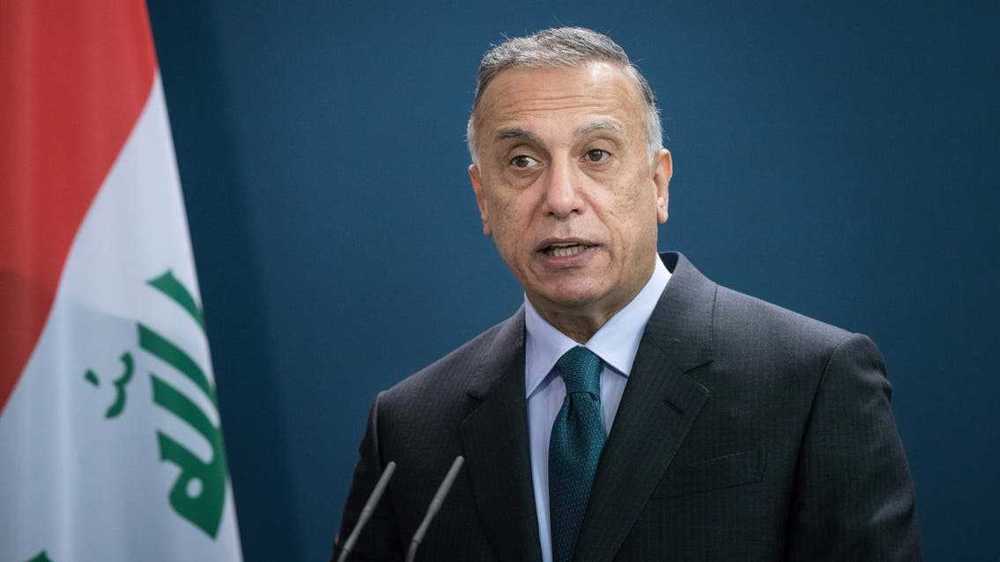
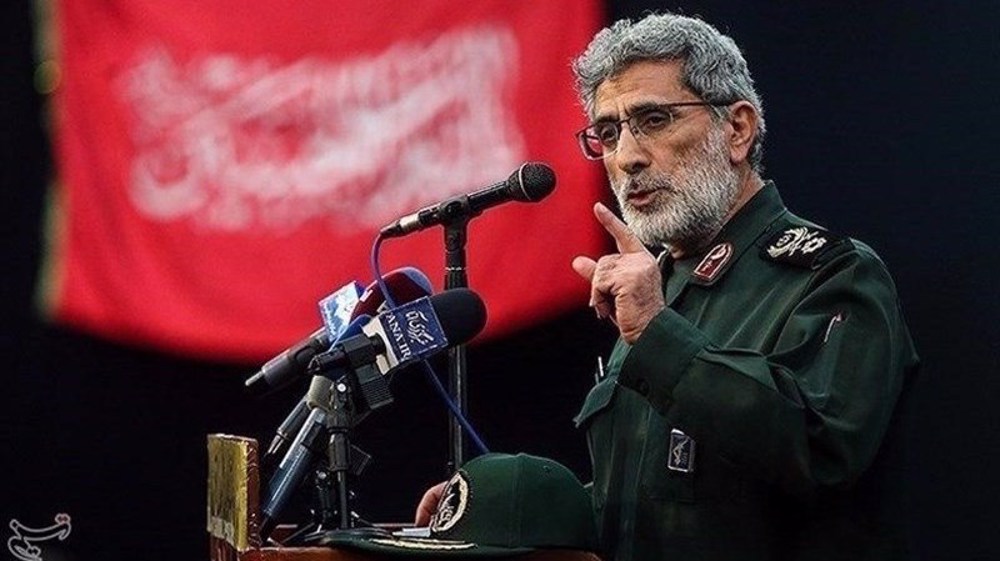
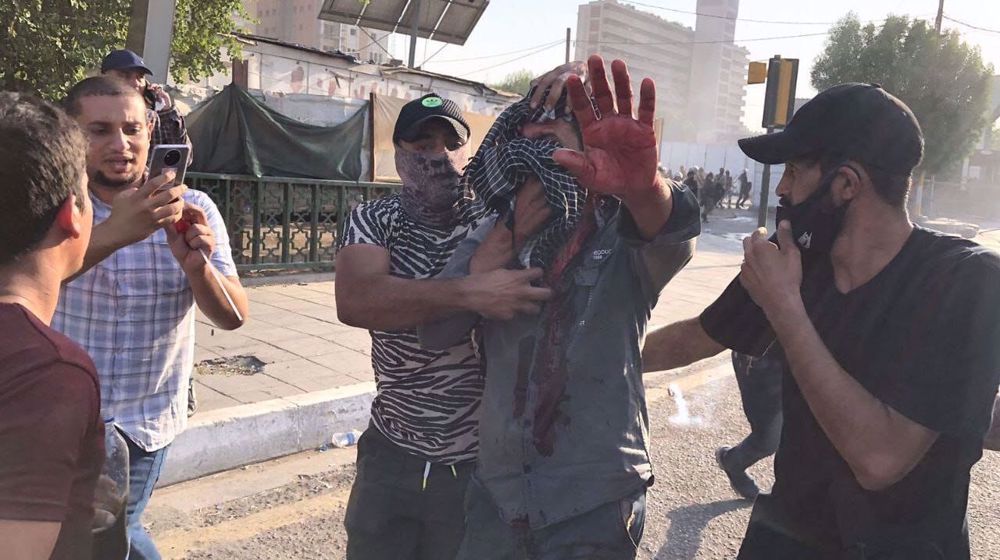
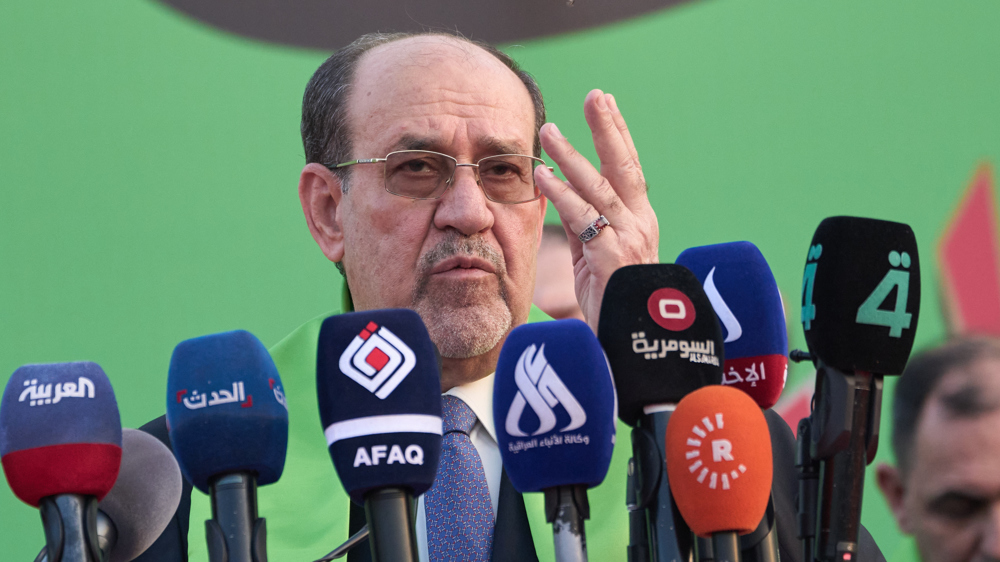
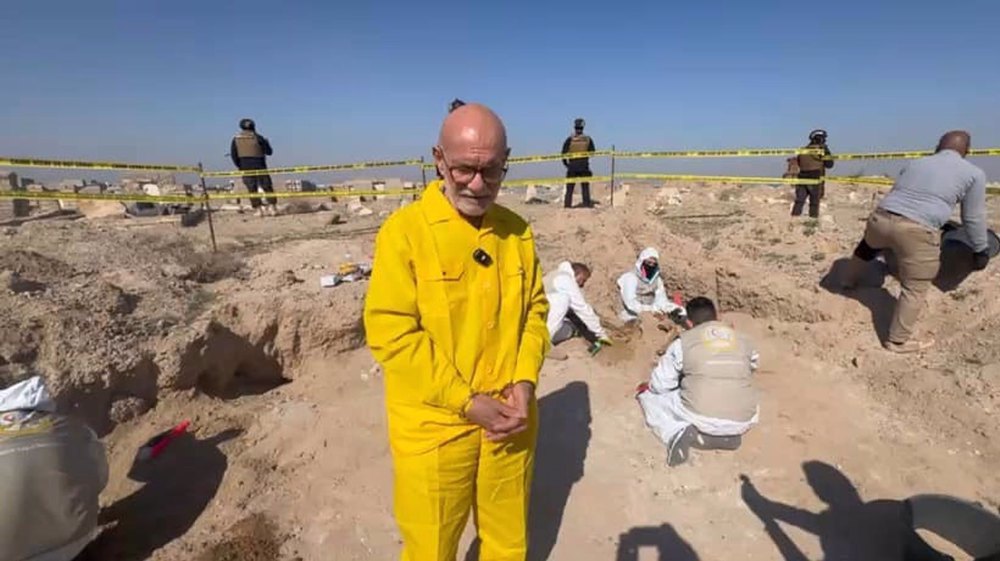
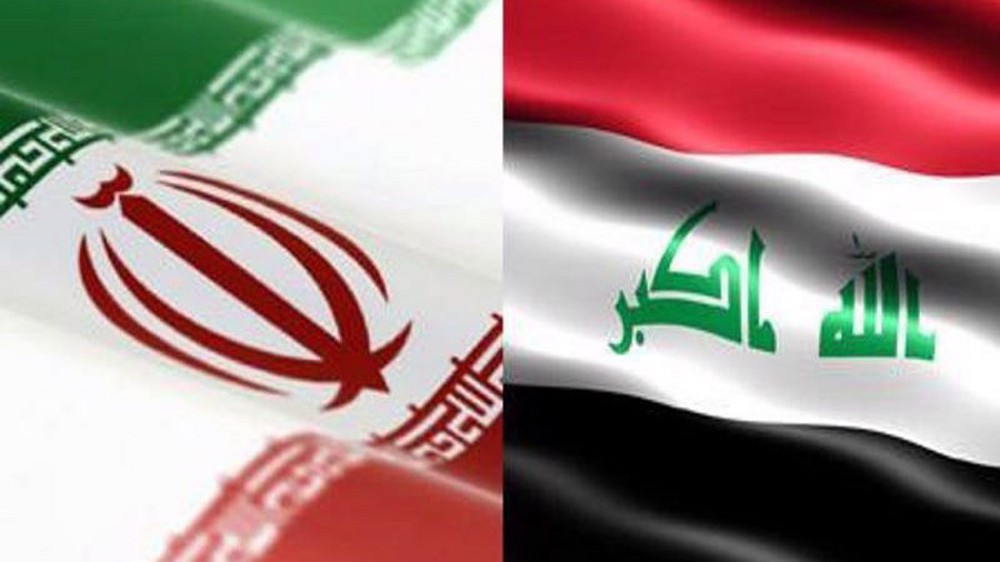




 This makes it easy to access the Press TV website
This makes it easy to access the Press TV website